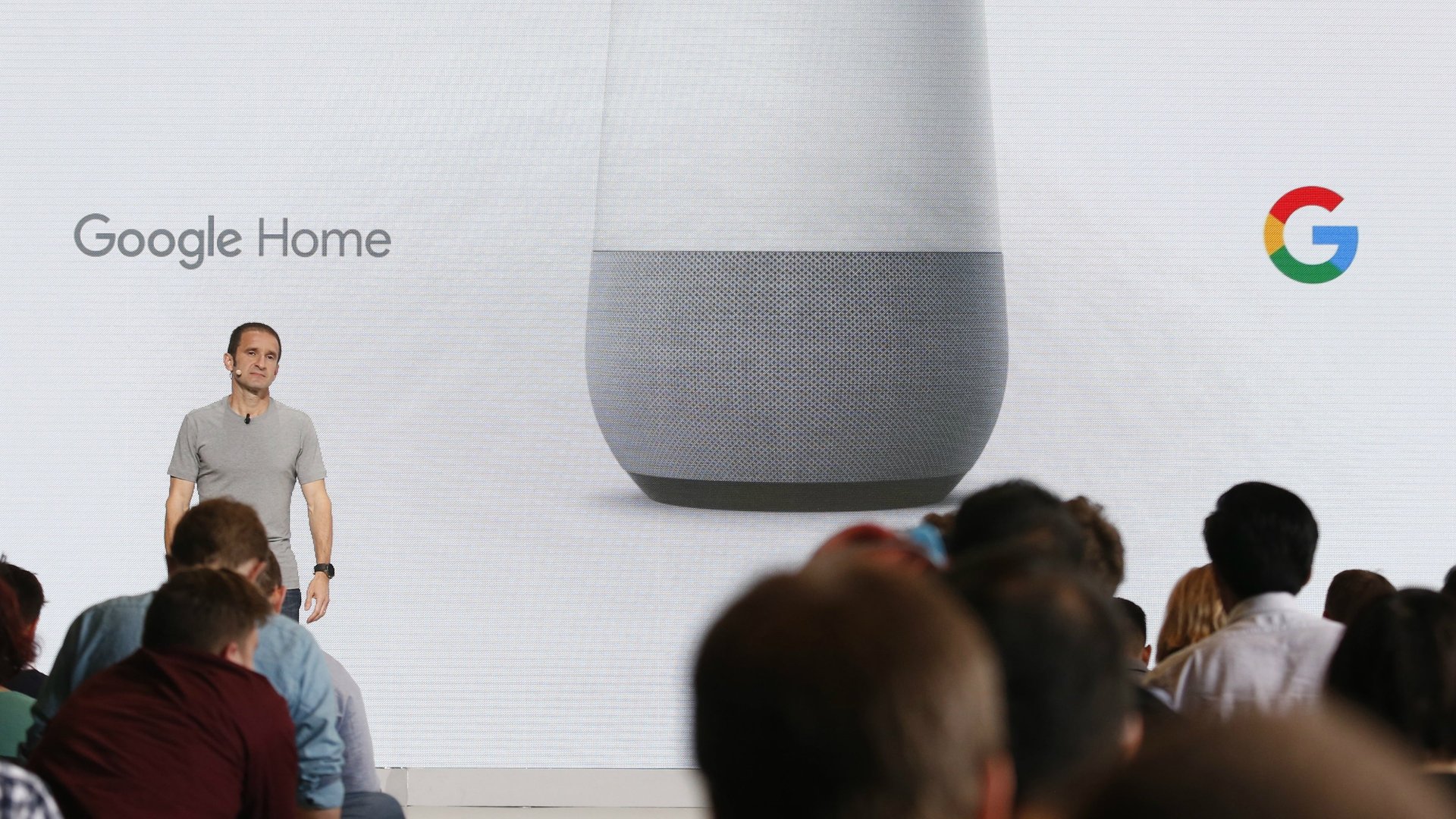Google Home or Amazon Echo? Quartz’s reviews
Google Home arrived in the US months ago, but a Super Bowl commercial for the voice-activated home assistant is serving as a new introduction of the product to millions of American television viewers.


Google Home arrived in the US months ago, but a Super Bowl commercial for the voice-activated home assistant is serving as a new introduction of the product to millions of American television viewers.
It’s a fairly political ad, too. In the one-minute spot, the omnipresent tech firm highlights how Google Home can fit the everyday lives of people across America—no matter their race, religion, gender, or ethnic background. It’s an obvious attempt to strike at the theme of connectivity during a time when the political climate around diversity has reached a fever pitch.
Aside from politics, though, just how good a product is the Google Home, and how does it stack against its chief competitor, the Amazon Echo? Quartz reporters spent some time with Google Home and the Echo, here’s what they found:
Google Home
It’s powered by the Google search engine, so it’s really good at answering questions. Beware, though, users have to precede every question with the phrase, “OK, Google.” (This can get tiresome, though it’s arguably kinder than the alternative.) The speaker quality is solid, it’s easy to set up, and it can sync with other home devices made by Google (like Nest and Chromecast), along with Philips Hue lights, and Samsung SmartThings.
The negatives: It can be a little slow in answering questions, and its responses are sometimes a little wordy. (Sample from Mike Murphy’s review in Quartz: “If you ask it for the weather where you are, it’ll tell you ‘Right now in Astoria, New York 11102, it’s currently 73 and mostly cloudy. It’ll be partly cloudy today with a forecasted high of 73 and a low of 52.’”
Still, if you’re in the market for an a voice-activated home assistant, the Google Home is a solid choice. Just know that your $130 is going toward technology that’s still nascent and has a lot of room for improvement.
(You can find Quartz’s complete review here.)
Amazon Echo
The Echo has been around a bit longer than Google Home—Amazon debuted it in 2014—so it’s already had it’s own Super Bowl commercial. Here the one that ran in 2016:
And here is what Quartz had to say about the Echo back then.
The natural question for people interested in this $180 product is how it has improved since.
It’s been lambasted as a “glorified radio clock,” but the Echo has its selling points, too. It can order you an Uber, help you shop for things on Amazon, and, like Google Home, can sync with Spotify. But for general queries, it’s less adept with conversation. Product reviews show people generally love it or are frustrated by its limitations, which range from not listening well for ambient voice commands to not being portable.
At the end of the day…
No matter which home assistant you choose, one thing was pretty clear to Quartz’s reviewers: These products are essentially middlemen that massive tech companies are using to get people to spend more money with them. The Echo, for example, will gladly steer you into purchasing more items from Amazon and its vast network of retailers. And Google Home will happily connect you to YouTube Red pay subscriptions, and songs and films from Google Play Music. Oh, and as always, these products vacuum up as much data about their users as possible.
Still, they’re pretty cool to play with.